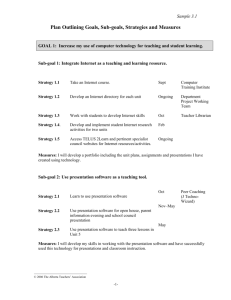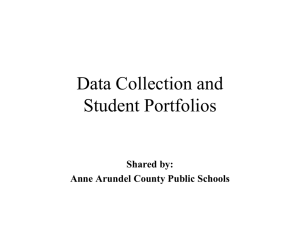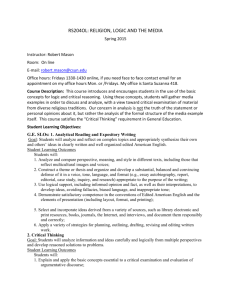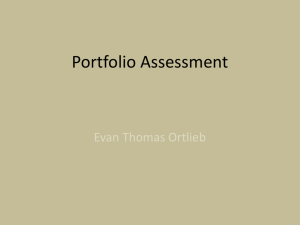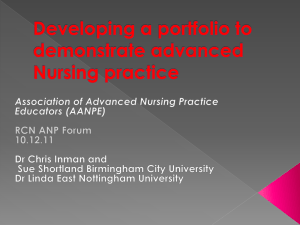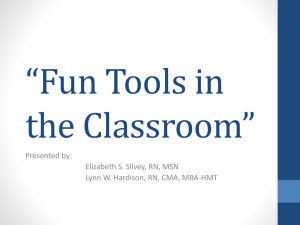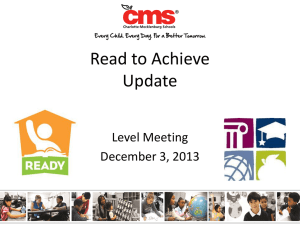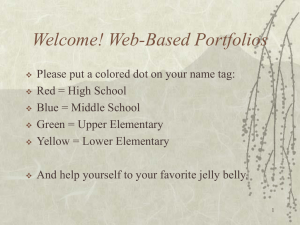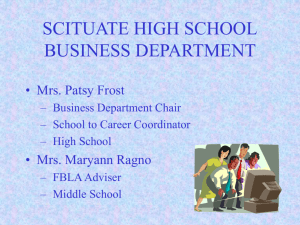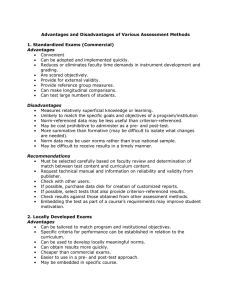RS204: RELIGION, LOGIC AND THE MEDIA Fall 2015 Fridays, 2:00
advertisement
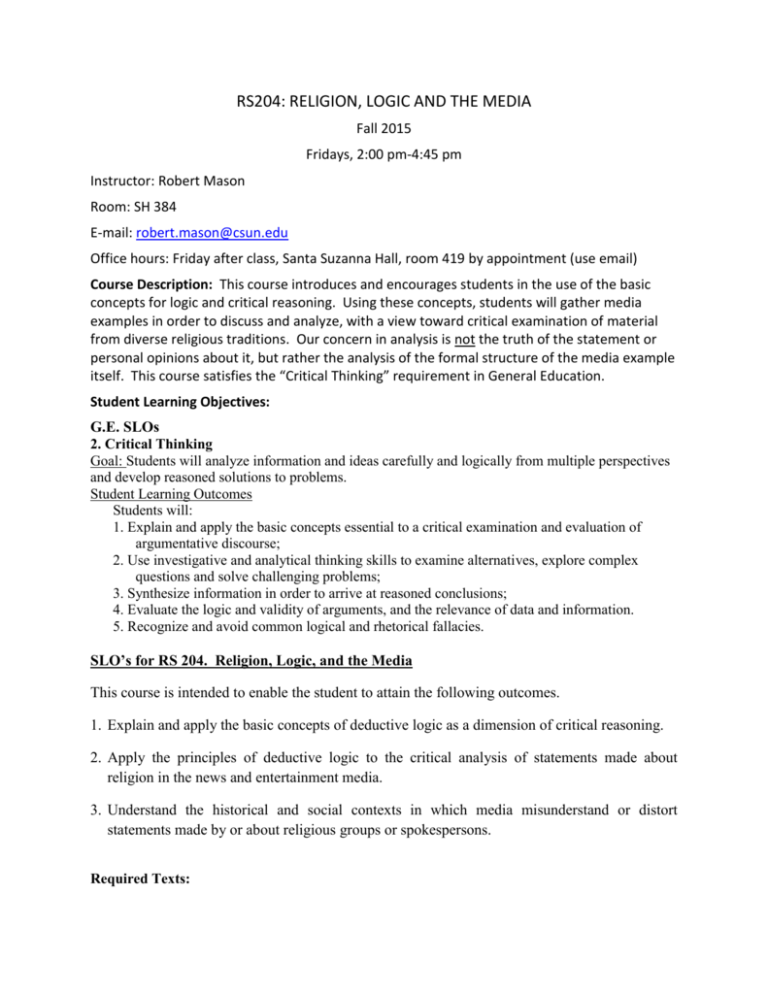
RS204: RELIGION, LOGIC AND THE MEDIA Fall 2015 Fridays, 2:00 pm-4:45 pm Instructor: Robert Mason Room: SH 384 E-mail: robert.mason@csun.edu Office hours: Friday after class, Santa Suzanna Hall, room 419 by appointment (use email) Course Description: This course introduces and encourages students in the use of the basic concepts for logic and critical reasoning. Using these concepts, students will gather media examples in order to discuss and analyze, with a view toward critical examination of material from diverse religious traditions. Our concern in analysis is not the truth of the statement or personal opinions about it, but rather the analysis of the formal structure of the media example itself. This course satisfies the “Critical Thinking” requirement in General Education. Student Learning Objectives: G.E. SLOs 2. Critical Thinking Goal: Students will analyze information and ideas carefully and logically from multiple perspectives and develop reasoned solutions to problems. Student Learning Outcomes Students will: 1. Explain and apply the basic concepts essential to a critical examination and evaluation of argumentative discourse; 2. Use investigative and analytical thinking skills to examine alternatives, explore complex questions and solve challenging problems; 3. Synthesize information in order to arrive at reasoned conclusions; 4. Evaluate the logic and validity of arguments, and the relevance of data and information. 5. Recognize and avoid common logical and rhetorical fallacies. SLO’s for RS 204. Religion, Logic, and the Media This course is intended to enable the student to attain the following outcomes. 1. Explain and apply the basic concepts of deductive logic as a dimension of critical reasoning. 2. Apply the principles of deductive logic to the critical analysis of statements made about religion in the news and entertainment media. 3. Understand the historical and social contexts in which media misunderstand or distort statements made by or about religious groups or spokespersons. Required Texts: David Lawrence Horne, Straight to the Point: A Primer for a Logical Introduction to Critical Thinking (Pearson Custom Publishing, 2005) In addition, students will bring to each class session, selected and printed copies of current media (within a month) for examples from credible print or online news sources. (Wikipedia is a resource, NOT a news source and hence not acceptable). Sources must include a variety of stories from diverse religious traditions for an acceptable portfolio. Classwork: Preparation, punctuality, attendance, discussion, argument, and interpretation are a significant part of the course. Since this class meets once a week, absence will negatively impact grades. Hardcopy media example assignments will be due weekly (late assignments will not be accepted). Assessments: Quizzes will be administered throughout the semester along with a mid-term exam on Friday, October 18th. Class Portfolios: Portfolios will be submitted as a draft, graded, revised, and then resubmitted as a final portfolio. Portfolios will encompass media examples from class that are analyzed in terms of concepts of logic and critical reasoning along with further examples of the students choosing using critical tools learned in class. Electroniquette: Please turn off electronic devices such as iPods and cell phones before entering the classroom. We are a dynamic community of learners and our class will be enhanced as we interact with each other. You may use your computer/tablet during class for class purposes only—note taking/accessing reading assignments. If your computer is distracting then don’t bring it to class. I reserve the right to deny your computer privileges during class. Plagiarism/Cheating: The CSUN Religious Studies Department is committed to the highest standards of academic excellence, honesty, and integrity. Students are expected to do their own work. Plagiarism and other forms of cheating will not be tolerated. Anyone caught cheating or helping someone else cheat will be subject to disciplinary action which could result in suspension, expulsion, or other disciplinary actions. For more information about the behavior defined as academic dishonesty, and a more detailed discussion of disciplinary procedures, consult the CSUN catalog. Remember, also, that much of the information posted on the Internet is protected by US copyright laws. Passing off this information as your own is plagiarism as well. Evaluation: 1. Classwork (25%)—Preparation, attendance, discussion, argument, and interpretation are a significant part of your grade. 2. Quizzes (10%)—One to two page critical analyses of the films that we will be studying and/or the concepts that will be presented for the particular class session. 3. Class Portfolios (65%)—There will be three portfolios that will carry the most weight in terms of grading and no late portfolios will be accepted. Grade Range: 94-100 = A 90-93 = A87-89 = B+ 84-86 = B 80-83 = B- 77-79 = C+ 74-76 = C 70-73 = C60-69 = D <60 = F List of Important Dates: Mar 13 First portfolio due and Midterm Apr 3 Second portfolio due May 1 Final portfolio due Accommodation for Disabilities: If you have a disability and need accommodations, please register with the Disability Resources and Educational Services (DRES) office or the National Center on Deafness (DCOD). The DRES office is located in Bayramian Hall, room 110 and can be reached at (818) 677-2684. NCOD is located on Bertrand Street in Jeanne Chisholm Hall and can be reached at (818) 677-2611. Website suggestions for media examples and analysis: Los Angeles Times: http://www.latimes.com/ New York Times: http://www.nytimes.com/ Washington Post: http://www.washingtonpost.com/ Newsweek: http://www.newsweek.com/ Time: http://www.time.com/time/ NPR: http://www.npr.org/ Democracy Now: http://www.democracynow.org/ Colbert Nation: http://www.colbertnation.com/home The Daily Show with Jon Stewart: http://thedailyshow.com/ The Pew Forum on Religion and Public Life: http://pewforum.org/ Blogs About Religion: http://beliefnet.com/News/2004/08/Best-Spiritual-Blogs.aspx Religion News Service: http://www.religionnews.com/ PBS, Religion and Ethics Newsweekly: http://pbs.org/wnet/religionandethics/ The Independent of London: http://www.independent.co.uk/ Information online: Elements and standards of Critical Thinking Online Model: http://www.criticalthinking.org/courses/Elements_standards_model.cfm (Go to “Click to Open”) CLASS SCHEDULE: This schedule is tentative and may be amended throughout the semester. Students will always have at least one week’s notice if there are changes. Friday, Aug 28: Introductions, Syllabus. Friday, Sept 4: Media examples. Intro. To Critical Thinking and Logic, DH vii-viii Friday, Sept 11: Media examples. Logical Definitions and Argumentation, DH 3-9. Friday, Sept 18: Media examples. Logical argumentation: Identify Arguments and Indicators, DH 15-22 Friday, Sept 25: Media examples. Making Arguments Explicit: Diagramming, Validity, and Soundness, DH, 23-35 Friday, Oct 2: Media examples. Elements of Non-argument Persuasion, DH 39-43 Friday, Oct 9: Media examples. Deductive Fallacies, DH 51-71 Friday, Oct 16: Media examples. . Media examples. Informal Arguments: Evaluating and Critiquing, DH 75-8. Friday, Oct 23: Media examples. Midterm. First draft portfolios due. Friday, Oct 30: Media examples. Formal Logic: Basic Symbols and Patterns, DH 89-97 Friday, Nov 6: Media examples. Diagramming Categorical Claims and Syllogisms, DH 103-117 Friday, Nov 13: Second draft portfolios are due. Media examples. Final discussion Friday, Nov 20: NO CLASS Friday, Nov 27: Thanksgiving break: NO CLASS Friday, Dec 4: Final draft of Portfolios due. Discussion and Summary.
